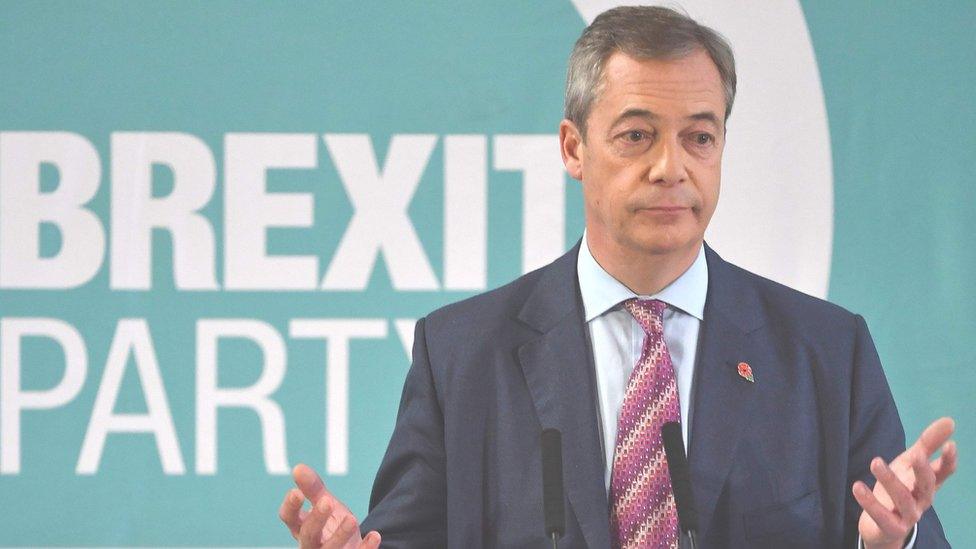Brexit: Spending on UK's final European elections revealed
- Published

The Brexit Party outspent the Conservatives and Labour in the UK's final elections to the European Parliament last year, figures show.
Nigel Farage's party, which topped the polls with 31% of the total vote, spent 拢2.609m in the four months up to polling day on 23 May 2019.
Despite barely campaigning at a national level, the Tories spent 拢2.6m according to the Electoral Commission.
The Liberal Democrats spent 拢2.468m, almost 拢1m more than Labour.
The 73 MEPs elected last year ended up serving for just over eight months. They vacated their seats in the European Parliament on 31 January 2020, when the UK officially withdrew from the EU.
The 2019 election was controversial as it took place almost two months after the date on which the UK had been originally intended to leave the EU.
The poll saw the Brexit Party and the anti-Brexit Lib Dems gain at the expense of the Conservatives and Labour.
The Tories' poor performance, the party's worst in a UK-wide election on record, contributed to Theresa May's decision to stand down as prime minister.
The UK's largest political parties spent 拢11.4m on the campaign, according to the electoral watchdog -
The Independent Group for Change, the anti-Brexit party formed by ex-Labour and Tory MPs early in 2019, spent 拢886,681 on a campaign in which it only got 3.6% of the votes.
The party, also known as Change UK, split soon after and then folded after the general election in December.
The Electoral Commission has launched a formal investigation into the spending recorded by the Conservatives and Green Party of England and Wales during the election campaign, saying there was evidence of "incomplete" returns.
It said it was also concerned that information provided by three other unnamed parties was not "completely correct" and it was looking into them.